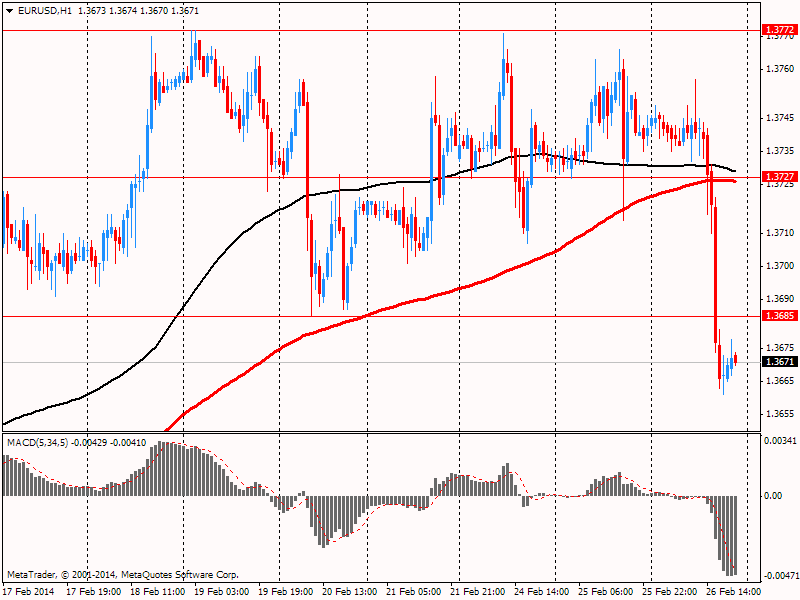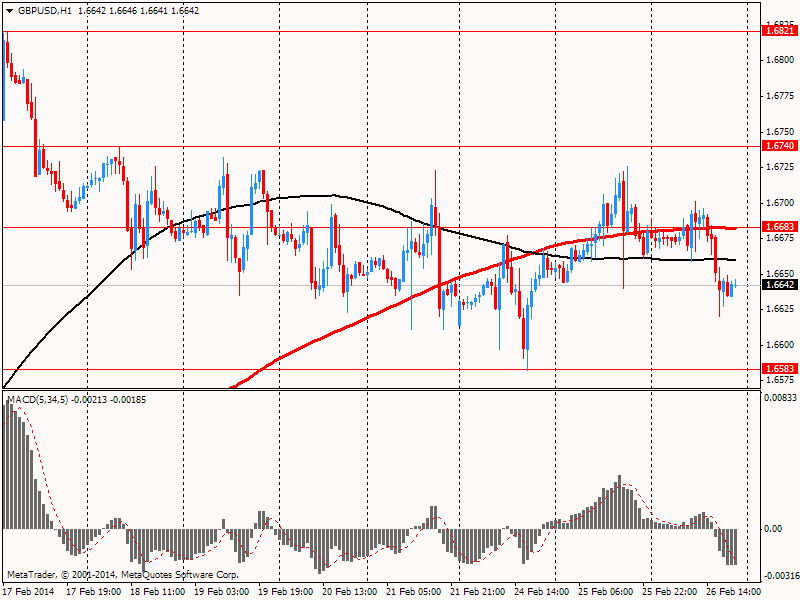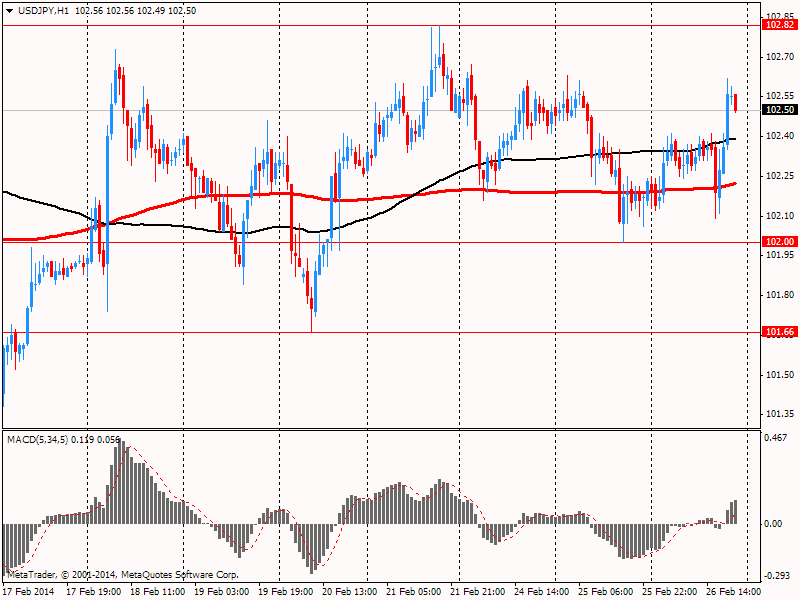- American focus : the euro weakened significantly against the dollar
Noticias del mercado
American focus : the euro weakened significantly against the dollar
Rate of the euro fell sharply against the U.S. dollar on risk aversion caused by the political crisis . Experts note that the calm, to mark to market the last session disappears , as Ukraine has captured everyone's attention again . Fears that Russia can make forceful intervention against Ukraine , grow , and the EU , meanwhile, argues that he is ready to act if necessary.
Also, the euro's failure was due to the upbeat U.S. data . Note that sales of newly built homes rose in January, which was an unexpected sign of strength after a long period of weakness in the housing sector . Sales of new single-family homes rose 9.6% to a seasonally adjusted annual rate of 468,000 compared with the previous month , reaching the highest level since July 2008. Result December was revised up to 427,000 . Economists had expected home sales in January to fall to an annual rate of 406,000 . Increase last month was due to sales growth in the Northeast , where they rose by 73.7 % to compensate for the decline of the previous month . The South and West was also recorded growth , but new home sales fell in the Midwest.
Meanwhile, experts say that in view of the approaching meeting of the ECB talk about lowering rates again resumed, putting pressure on the euro. Underway speculation that the ECB is ready to act and considering several options , including lowering interest rates on deposits , which is currently zero.
Pound fell moderately against the dollar , as after GDP data release , investors' attention shifted to the publication of a report on potrebdoveriyu Gfk, house prices Nationwide, and the speech of the Central Bank of Carney .
Recall , the British economy grew in line with preliminary estimates for the fourth quarter and for the full growth in 2013 was weaker preliminary calculations. Such data are the Office for National Statistics (ONS ) . Gross domestic product expanded 0.7 percent in the quarter , measured according to a preliminary estimate published on 28 January. Growth rate slowed down slightly from the 0.8 percent increase in the third quarter . In annual terms, the economy grew by 2.7 percent - growth has been revised downwards to 2.8 percent. In general, the 2013 GDP growth was revised down slightly to 1.8 percent from 1.9 percent.
The yen weakened significantly against the U.S. dollar , approaching to yesterday's lows , due to expectations of output data packet in Japan . The market expects that the national consumer price index ( excluding food prices ) will rise by 1.3 % per annum after the same increase in January, and industrial production - by 3.1 % per annum. Also tomorrow, will report on household spending and retail sales for January. It is expected that spending rose by 0.5 percent , while sales increased by 3.9 percent.
Also influenced the course of trading words board member Koji Ishida BOJ . He noted that because of the tax increase in April economic data in the first half can be very confusing and the Bank of Japan should be very careful when evaluating the economy. " In the first place should not hurry with the expansion of incentive programs " - said Ishida .
Comments Ishida , broadly in line with estimates of the Bank of Japan and may reduce the rumors of further stimulation by the Central Bank this year because of doubts about the economy after the increase in the sales tax .


